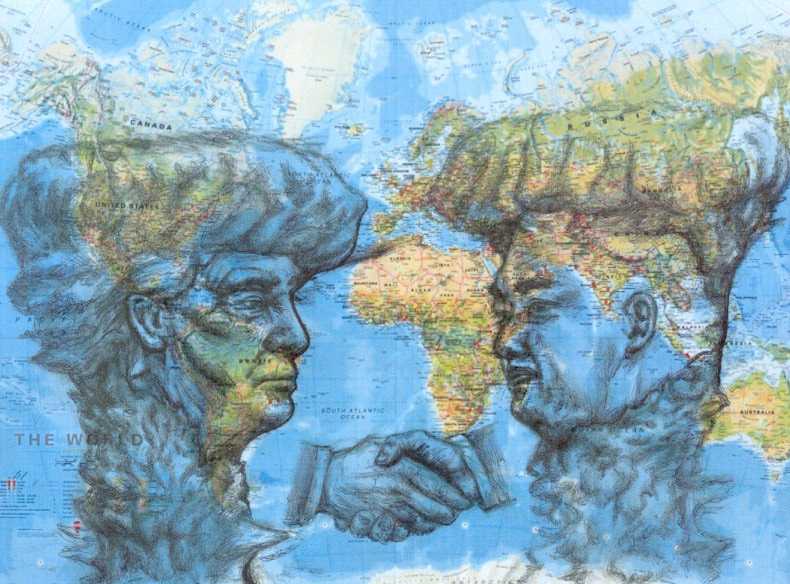By Joshua Burciaga

Those who fail to learn from past mistakes are doomed to repeat them in the future. This is exemplified in the relationship between the United States and North Korea.
When it comes to North Korea, U.S. executive administrations have not acknowledged the past.
The public remains unaware of how U.S. actions in the Korean War lead to todays tense relationship with North Korea over their nuclear arsenal.
The Asian Pacific Journal records that at the start of the war South Korea executed masses of innocent people in the presence of U.S. military officers.
Known as the Summer of Terror, South Korean President Syngman Rhee sent the military to execute over 100,000 South Koreans, fearing they would join the communists.
“The declassified record of U.S. documents shows an ambivalent American attitude toward the killings … Gen. Douglas MacArthur viewed the executions as a Korean internal matter, even though he controlled South Korea’s military,” the AP Journal said.
According to the Washington Post, the U.S. Air Force carpet-bombed factories, water dams, villages and cities filled with innocent civilians.
These war crimes were not disclosed to the public. Chief Justice William O. Douglas was horrified by the destruction he witnessed visiting Korea in 1952.
“I had seen the war-battered cities of Europe, but I had not seen devastation until I had seen Korea,” Douglas said.
Journalist Lee-Jae Bong reports the U.S. sent nuclear bombms into South Korea in 1958 to reduce U.S. military spending.
Fearing nuclear warfare, North Korea asked their allies, the Soviet Union and China to deploy nuclear warheads into their country. Their requests were denied.
According to the Bulletin of the Atomic Scientists, hundreds of U.S. nukes were positioned in South Korea before the North acquired a nuclear warhead.
The massacres, U.S. war crimes and fear of nuclear attack are still fresh in North Korea’s memory. It makes sense why the North wants a nuclear missile program despite ally disapproval.
According to CNN poltitical reporter Stephen Collison, Kim Jong Un invited President Donald Trump to North Korea, but the current political landscape is not reassuring.
“Trump is not like any of his predecessors and cares little for foreign policy orthodoxy,” Collison said.
These doubts are magnified with Trump’s firing of his Secretary of State, Rex Tillerson.
The Secretary of State advises the president in foreign affairs. Without Tillerson, it is hard to not worry about negotiations with the North.
Trump has a limited education of the Korean War. He needs someone like Tillerson to avoid a disastrous conflict.
Hopefully Mike Pompeo, Tillerson’s replacement, is knowledgeable enough to lead Trump to a peaceful resolution.












